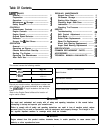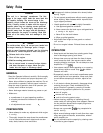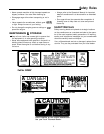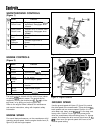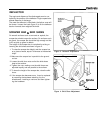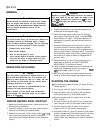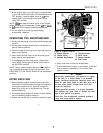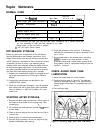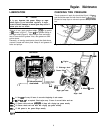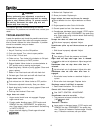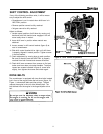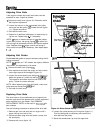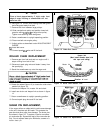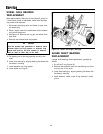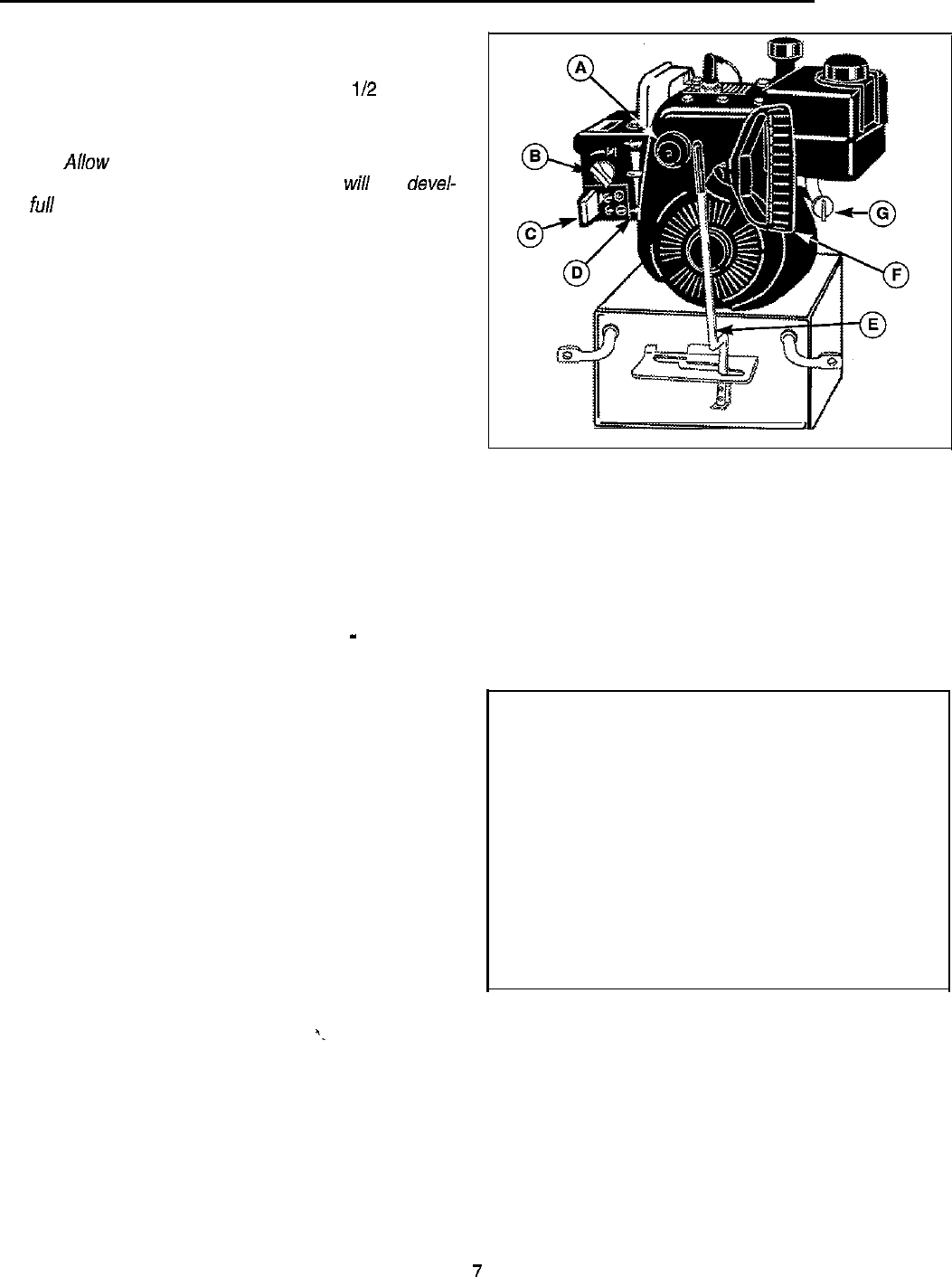
Operation
7. As the engine warms up and begins to operate even-
ly, turn the choke knob slowly counterclockwise to the
OFF position. If engine falters, return to
l/2
choke
position until it runs smoothly, then turn it to the
choke OFF position.
NOTE: Allow the engine to warm up for a few minutes
before operating the snowthrower. Engine will not devel-
op
full power until it reaches operating temperature.
8. Run the engine at or near top speed during
snowthrower operation.
OPERATING THE SNOWTHROWER
1. Position the discharge chute to the desired angle and
direction.
2. Set the ground speed control lever to the desired for-
ward or reverse position.
3. Press the auger clutch lever on the right-hand grip to
begin auger rotation.
4. Press the drive clutch lever on the left-hand grip to
begin moving the snowthrower.
5. To disengage the drive mechanism, release both
clutch levers. Set the ground speed control lever to
the NEUTRAL position.
NOTE: After a normal break-in period of 2
-
4 hours of
use, it may be necessary to adjust the drive belt. See
DRIVE BELTS in the Service Section for the adjustment
procedure,
AFTER EACH USE
1. Before stopping engine, pull the starter rope twice
and allow it to rewind slowly, then stop the engine by
moving the throttle lever (D, figure 5) all the way
down or by pulling out on the ignition key. This will
prevent freeze-up.
2. The engine Owner’s Manual contains further informa-
tion on preventing engine freeze-up.
3. Always remove the key to prevent unauthorized use.
Figure 5. Engine Controls
A. Primer Button
D. Throttle Lever
B. Choke Knob E. Shift Lever
C. Ignition Key/Switch F. Starter Handle
G. Fuel Valve
4. Clean snow and ice from the snowthrower.
5.
If the snowthrower is kept in a cold shelter, fill the fuel
tank to prevent condensation. Do not store near
sparks or flame.
A
WARNING
Never store snowthrower, with gasoline in engine
or fuel tank, in a heated shelter or in enclosed,
poorly ventilated enclosures. Gasoline fumes may
reach an open flame, spark or pilot light (such as a
furnace, water heater, clothes dryer, etc.) and
cause an explosion.
Handle gasoline carefully. It is highly flammable
and careless use could result in serious fire dam-
age to your person or property.
Drain fuel into an approved container outdoors
away from open flame or sparks.
7





